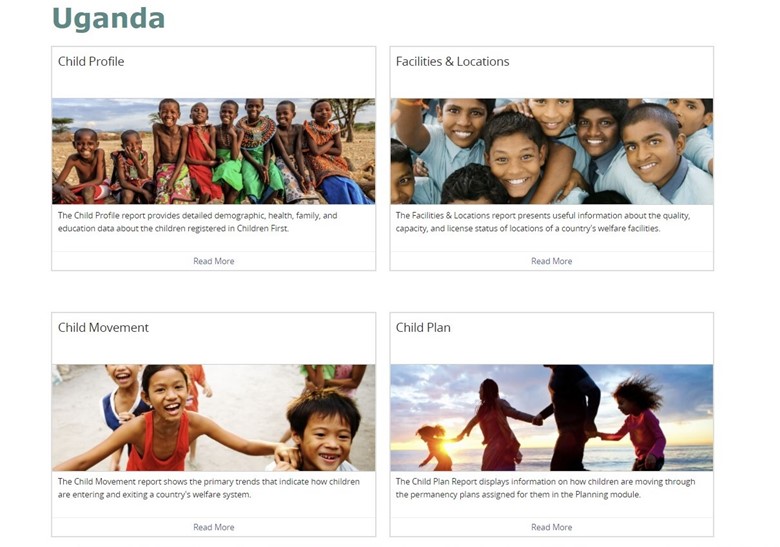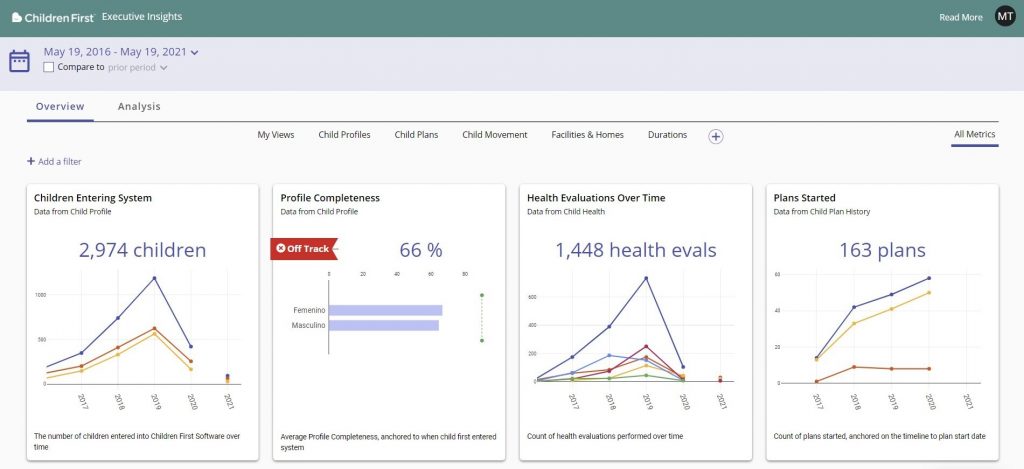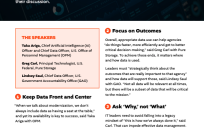 Government is uniquely positioned to create and deliver solutions to some of society’s greatest issues. The response of governments at all levels to the COVID-19 pandemic shows just how much the public sector is at the forefront of community impact, particularly when efforts are supported by modern technology.
Government is uniquely positioned to create and deliver solutions to some of society’s greatest issues. The response of governments at all levels to the COVID-19 pandemic shows just how much the public sector is at the forefront of community impact, particularly when efforts are supported by modern technology.
I chose to share this story with this audience because solving for other emerging issues — from global child welfare to challenges much closer to home — starts with the notion of expanded data use. Knowing what data you have and taking the next step to envision its higher use, creating new stakeholders and partners along the way, is an approach that can work to solve for issues that matter most to jurisdictions.
The unique model of the non-governmental organization (NGO) BEB (formerly Both Ends Believing) provides compelling — and inspiring — proof that employing modern technology to maximize government data can, in fact, move the needle on emerging issues; in this case, a critical humanitarian one. BEB’s mission, story and initial impact were first explored in this National League of Cities (NLC) piece, “How Government Plus Modern Tech Improves Lives.”
Since that story ran, BEB has continued to innovate with technology to develop child welfare best practices and improve child care and placement decisions.
Critical Digital Infrastructure
In countries including Dominican Republic, Honduras, Uganda and Guatemala, the lack of technology to organize information has been a major stumbling block to family preservation and child-focused permanency planning. The biggest barrier to moving children from institutions to families is data – its inadequacy or the inability to access it in electronic form. It is often the case that there is little-to-no data on the number of children in institutions as well as the best family placement for those children.
To overcome this data gap, BEB co-created and administers the Children First Software (CFS) platform that works to capture comprehensive digital profiles of children in institutions and orphanages in selected counties outside of the U.S. CFS is designed to identify a child’s best opportunity for family-based care by collecting the valuable information that helps move children into stable, long-term settings.
Maximizing Data’s Use
BEB partners with government officials in the countries in which it operates to move its collected data into something actionable. To fully realize the promise of the data, BEB adopted a cloud-based open data platform in order to leverage robust reporting and dynamic visualizations. Meaningful, accurate reports give officials the whole picture so they can make the best, most informed decisions.
“Having data available in an easy, understandable way helps agencies and countries to see patterns and outcomes to place children as quickly as possible into a safe and loving family environment,” said Margaret Elizabeth McKissack, BEB’s Vice President, External Affairs. Examples of use range from identifying individual children whose records or cases require immediate attention to identifying patterns in movement of children through various orphanages across a country that could indicate trafficking. Data can also help identify high-performing and low-performing orphanages.
The cloud-based data platform offers BEB the ability to create reporting pages for multiple levels of its organization as well as end users in the countries involved. “Without the platform,” McKissack explained, “users would need to manually run individual reports that wouldn’t put all the pieces together for a holistic picture.”
Moving from a paper-based system to a digital one on the platform gives government partners and child welfare actors data and visualizations at their fingertips to drill down into the details of each situation. This level of detail will help staff optimize how they improve the lives of children in their care.
Dashboards Tell the Story
A dashboard for BEB, for example, can show analytical reports for each engaged country with data on child profiles, facilities and locations, child movement, children’s plans, case duration and user productivity.
Over 17,000 children are currently registered in CFS and on their path from institutions to loving families. These dashboards and their trends will increase visibility into how these cases are doing and what efficiencies can be increased in order to accelerate placement of the child.

Here is a sample BEB dashboard. These reports benefit leaders in each country by surfacing patterns and enabling visibility from a macro to a micro level. Because confidentiality and data security are always front of mind when dealing with child information, user roles are carefully assigned and gated. As BEB identifies and highlights patterns to its partner governments, it enables leaders to prioritize targeted areas for further assessment.
Trends and Impact
BEB and overseas partners continue to leverage data for better outcomes for children, and their work will increasingly draw on the insights the platform can surface. New insights and related reports will help governments know how to monitor and regulate institutions. Customized reports based on trends and what each country needs are also on the horizon.
“One of the most exciting and meaningful trends that the reports will share will be around health data of institutionalized children as well as the placement of children from institutions to families through CFS,” McKissack noted.

Here are some sample BEB data insights.
Reports can also shed light on what percentage of children can be reunified with family or need to be adopted in order to grow up in a permanent, loving home. Ultimately, strategic use of data in this arena will inform best practices across countries, improving child welfare practices internationally.
It’s important for all of us in public sector work to reflect on what bigger changes we can affect to improve lives within our areas of jurisdiction or expertise. Whether it’s food insecurity, homelessness, the opioid crisis or moving the needle on digital inclusion and enhancing access for increased equity, sometimes we just need a moment to be inspired, step back and dream big.
Interested in becoming a Featured Contributor? Email topics you’re interested in covering for GovLoop to [email protected]. And to read more from our Spring 2021 Cohort, here is a full list of every Featured Contributor during this cohort.
Meredith Trimble is a former municipal official and Town Council Acting Chair, who focused on strategic planning, annual budgeting and bonded infrastructure projects. Her government experience also includes posts in both federal and state-level executive branch agencies: Associate Editor of the Federal Election Commission’s FEC Record; and Director of Education for the CT Office of State Ethics. In her current role as a Content Manager, Editorial with Tyler Technologies, Inc., she writes content to help empower those who serve the public. Her current focus is to help facilitate data-enabled organizations and create connections between governments and those they serve.





Leave a Reply
You must be logged in to post a comment.